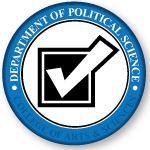Document Type
Article
Publication Date
5-31-2008
Publication Title
Diplomacy & Statecraft
Volume
19
Issue
1
First Page
1
Last Page
19
DOI
https://doi.org/10.1080/09592290801913676
Abstract
Advances in modern science are now shaping both the character and content of international relations. Scientific issues in international diplomacy such as environmental issues, space policy, biotechnology and stem cell uses, and weapons technology will all require the participation of an epistemic community of scientists alongside traditional diplomats. This article will examine three historical cases of American diplomacy in which science made a significant contribution to the outcome: the German–American Pork War of 1880–1891, the International Geophysical Year of 1956–1957, and the Montreal Protocol of 1987. In each instance, by utilizing scientists and their knowledge, the United States was able to gain benefits from cooperation that it could not have gained alone. Now, however, the US government has de-emphasized the contributions of science and scientists to its detriment when negotiating the largest international scientific problem to date: global climate change.
Recommended Citation
Chalecki, E. L. (2008). Knowledge in Sheep’s Clothing: How Science Informs American Diplomacy. Diplomacy & Statecraft, 19(1), 1–19. https://doi.org/10.1080/09592290801913676
Creative Commons License

This work is licensed under a Creative Commons Attribution-Noncommercial-No Derivative Works 4.0 License.


Comments
This is an Accepted Manuscript of an article published by Taylor & Francis in Diplomacy & Statecraft on May 31, 2008, available online: https://doi.org/10.1080/09592290801913676
Note: PDF passed accessibility checker before upload.